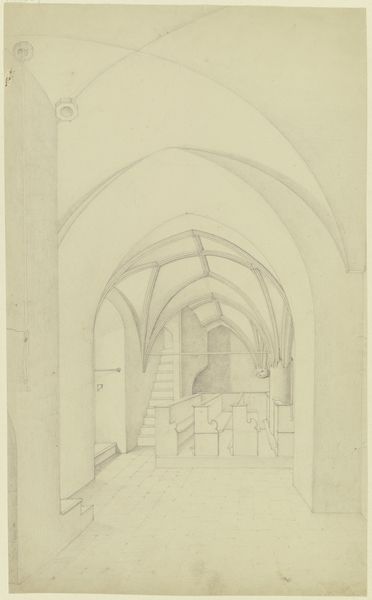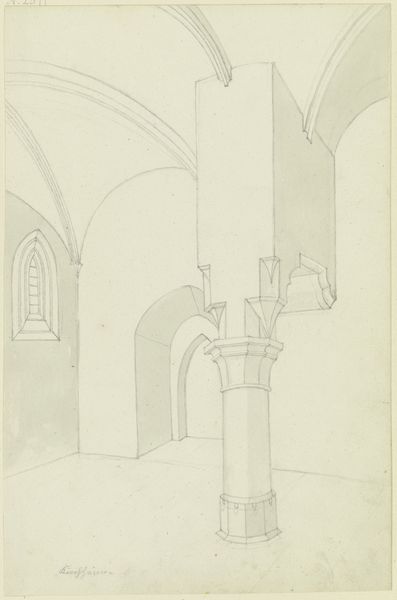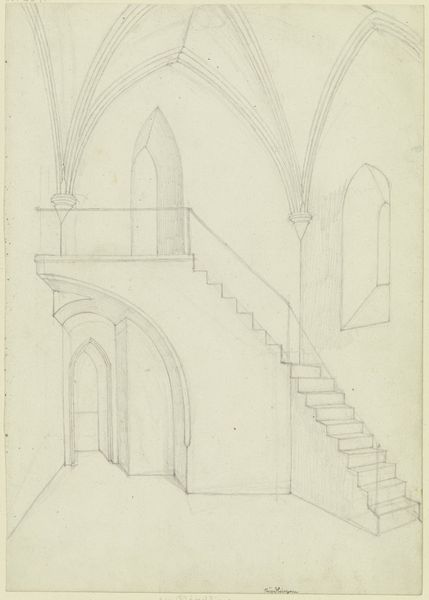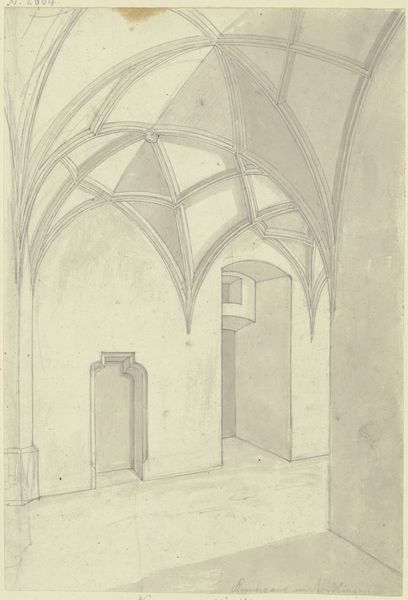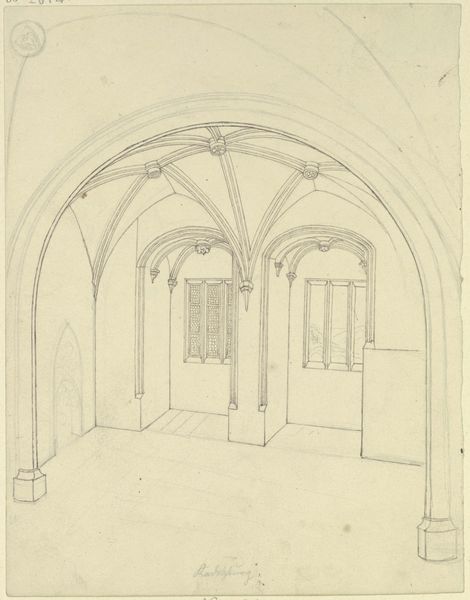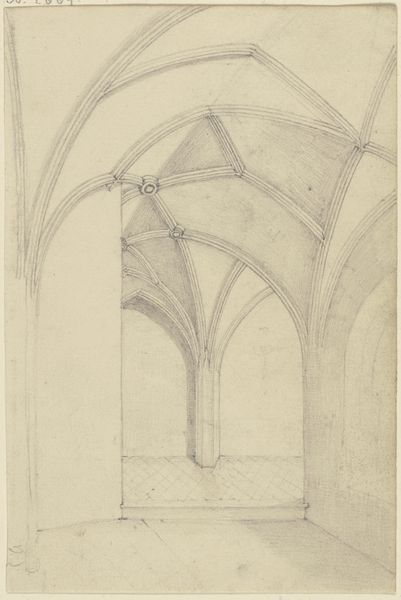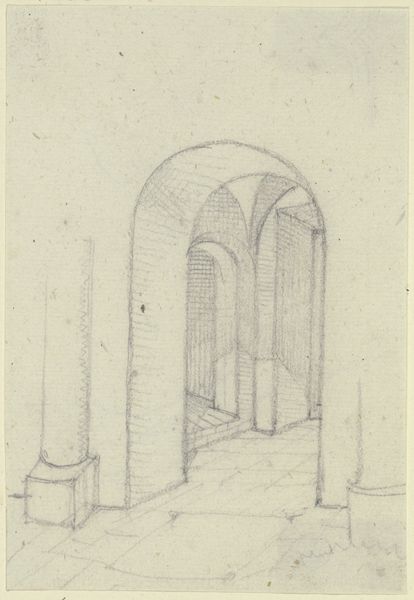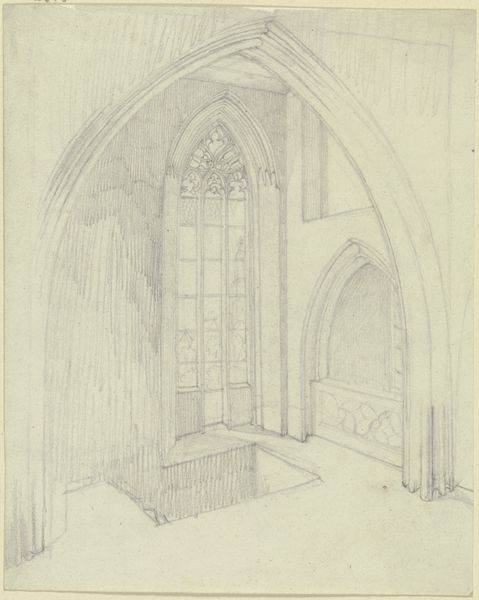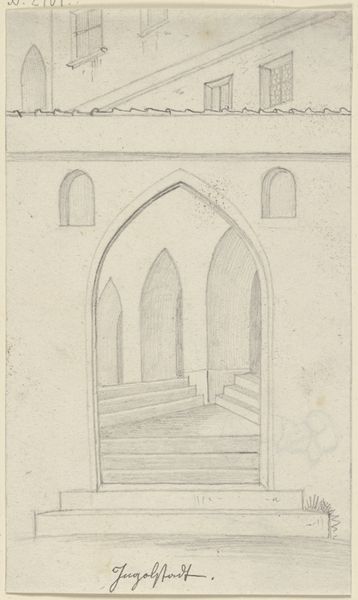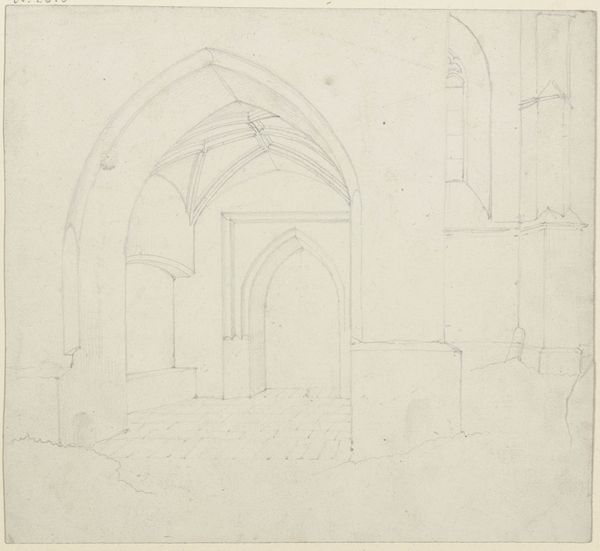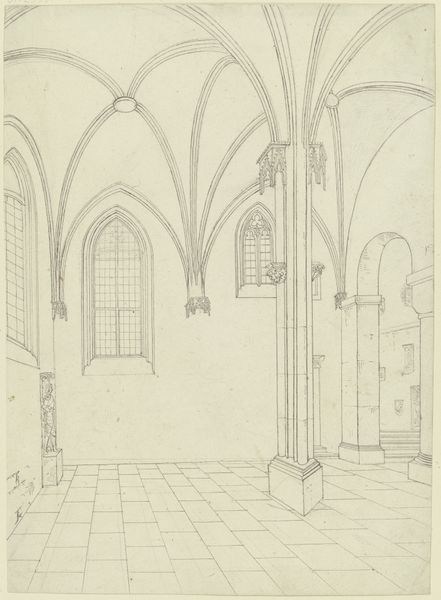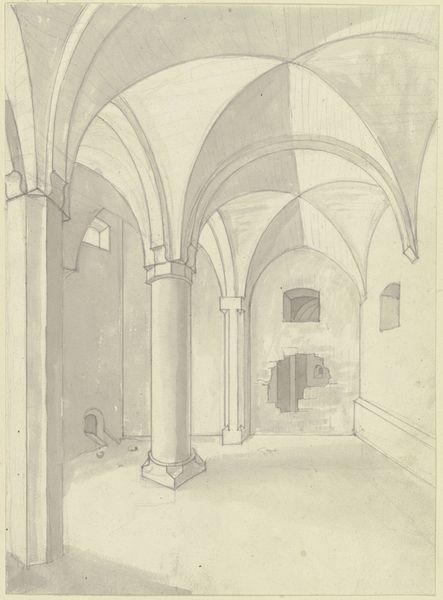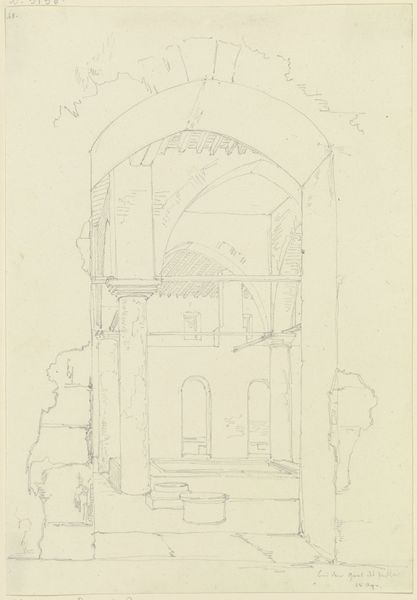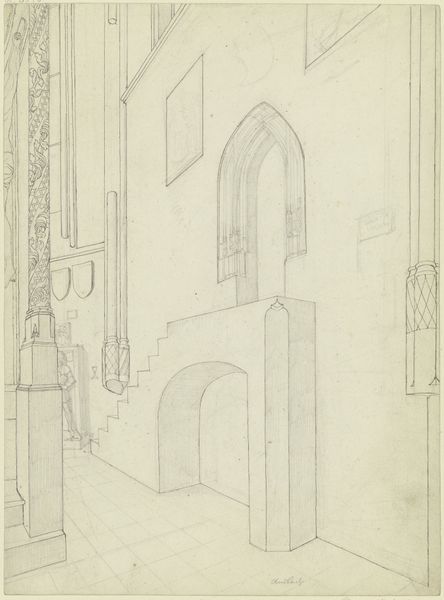
drawing, paper, pencil, architecture
#
drawing
#
16_19th-century
#
perspective
#
paper
#
geometric
#
pencil
#
architecture
Copyright: Public Domain
Karl Ballenberger made this sketch of a vaulted room in Nördlingen, Germany, sometime in the first half of the 19th century. The drawing depicts an interior space defined by Gothic arches and a curving staircase, rendered in precise detail with graphite on paper. Ballenberger was active during a period when the Gothic style became newly fashionable. In the early 1800s, there was a revival of interest in medieval architecture across Europe, often tied to a rising sense of nationalism. Artists and architects looked to the past for inspiration, celebrating what they considered the unique cultural heritage of their nations. Drawings like this one allowed artists to study and document architectural forms in preparation for new construction projects. To understand this work more fully, one might consult architectural treatises of the period, travel guides, and local histories of Nördlingen. By situating art within its historical context, we reveal its meaning as something contingent, tied to specific social and institutional conditions.
Comments
No comments
Be the first to comment and join the conversation on the ultimate creative platform.
